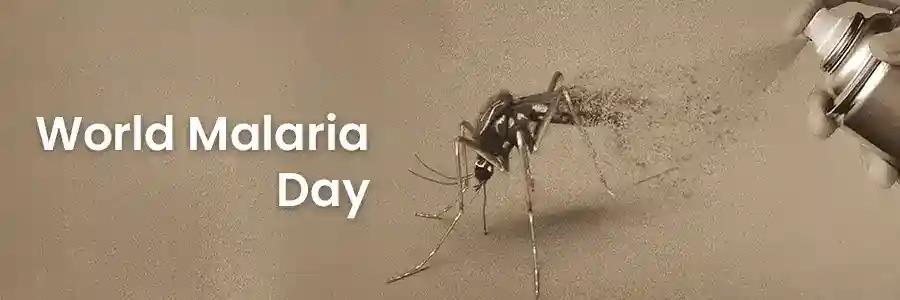World Malaria Day 2023
World Malaria Day is observed on April 25th annually to raise awareness about the disease, prevention, and control. Malaria is a mosquito-borne disease caused by Plasmodium parasites mostly found in many tropical and subtropical countries.
History
Drinking enough water is essential during pregnancy, but it becomes even more important during hot weather. Dehydration can cause dizziness, headaches, and nausea, which can harm the fetus and the mother. So expectant mothers should drink at least 8-10 glasses of water in 24 hours to keep themselves hydrated.
Many health organizations and business people across the globe will unite on this day with a common goal of eliminating malaria worldwide, especially in tropical countries.
Theme
The theme of World Malaria Day 2023 is “Time to deliver zero malaria: invest, innovate, implement.” This theme emphasizes the need for sustained investment and action to achieve a world free of malaria.
Malaria control interventions have significantly contributed to the reduction in malaria cases and fatalities over the past decade. The use of insect repellents, mosquito net over the bed, spraying an insecticide or repellent on clothing, wearing long-sleeved clothing and long pants have been critical in reducing malaria transmission. However, the gains made in malaria control are threatened by the emergence of drug-resistant parasites and insecticide-resistant mosquitoes.
The fight against malaria requires sustained investment in research, development, and deployment of new tools and technologies to overcome the challenges faced. This investment should be geared towards the development of new drugs, vaccines, and diagnostic tools that are effective against drug-resistant parasites and insecticide-resistant mosquitoes. It should also be directed towards improving access to existing tools and technologies, particularly in hard-to-reach areas.
In addition to investment in research and development, malaria control also requires sustained political commitment, community engagement, and multi-sectoral collaboration. Governments, civil society organizations, and other stakeholders must work together to strengthen health systems, improve access to healthcare, and ensure that malaria control interventions are implemented effectively and sustainably.
Community engagement is critical in malaria control. Communities must be empowered to take ownership of malaria control interventions and to participate actively in their implementation. Community-based approaches such as the use of community health workers and the involvement of community leaders in malaria control programs have been effective in improving access to healthcare and increasing the uptake of malaria control interventions.
In conclusion, World Malaria Day is an opportunity to raise awareness about the burden of malaria, the progress made in malaria control, and the challenges that remain. The theme of World Malaria Day 2023 emphasizes the need for sustained investment in the fight against malaria. This investment should be geared towards the development of new tools and technologies, strengthening healthcare systems, and engaging communities in malaria control interventions. Investing in malaria control can end malaria for good and contribute to a healthy nation.


